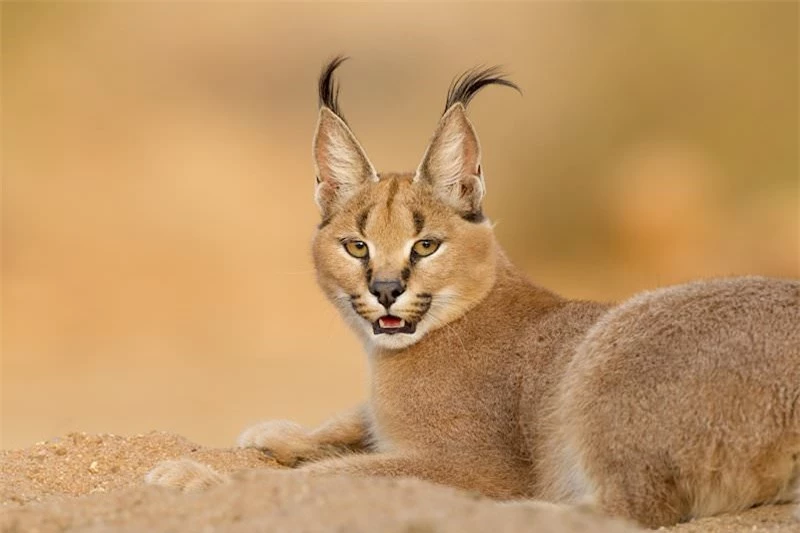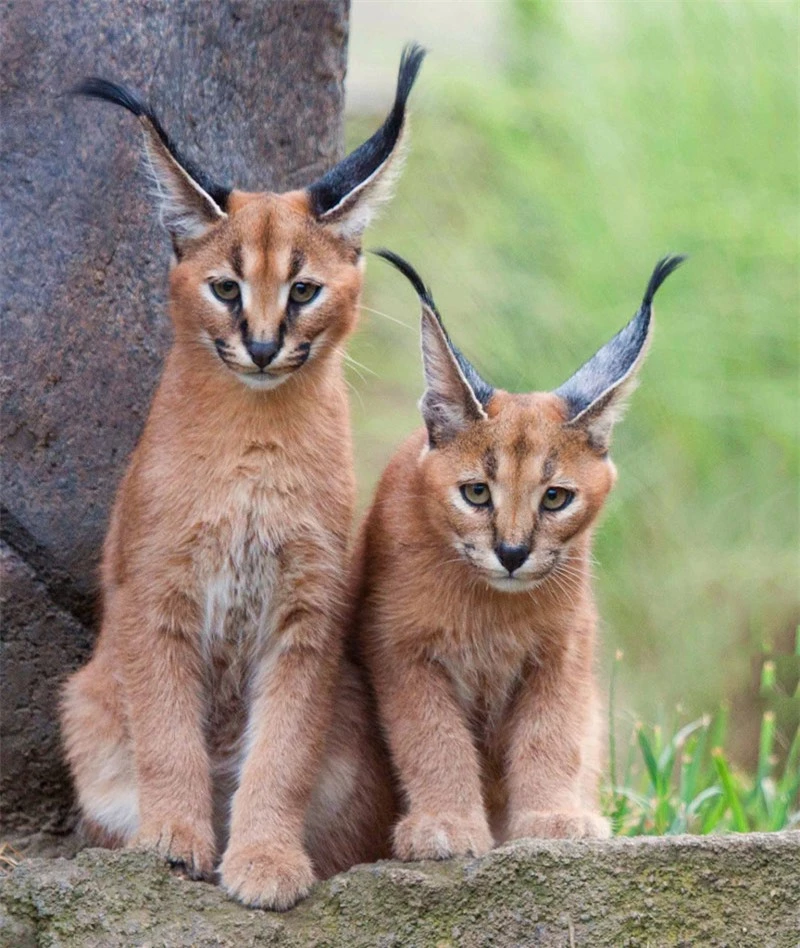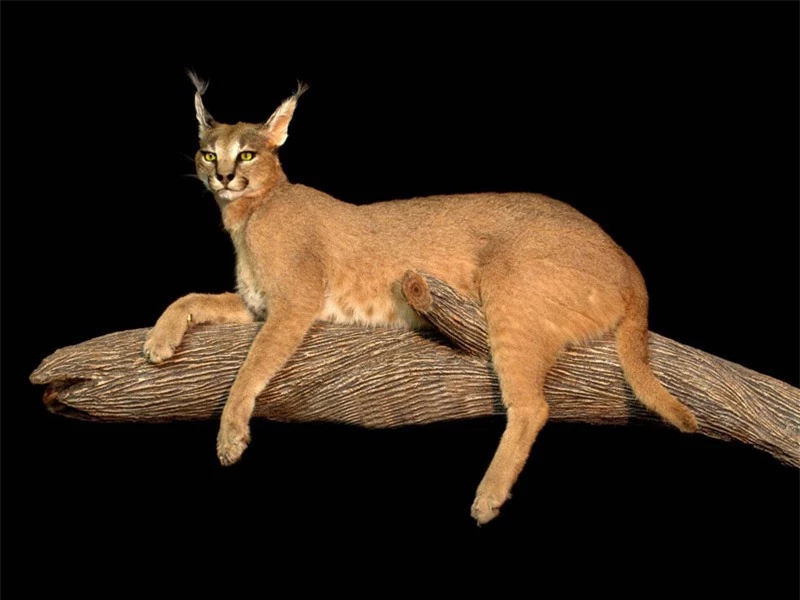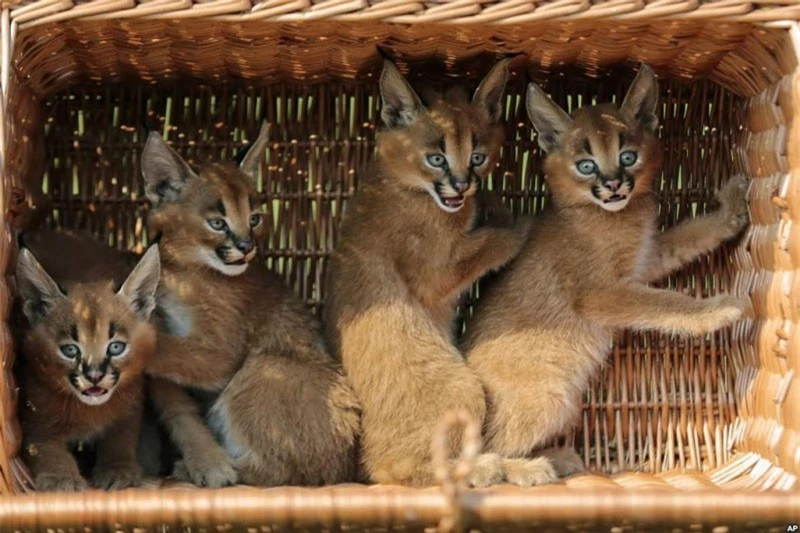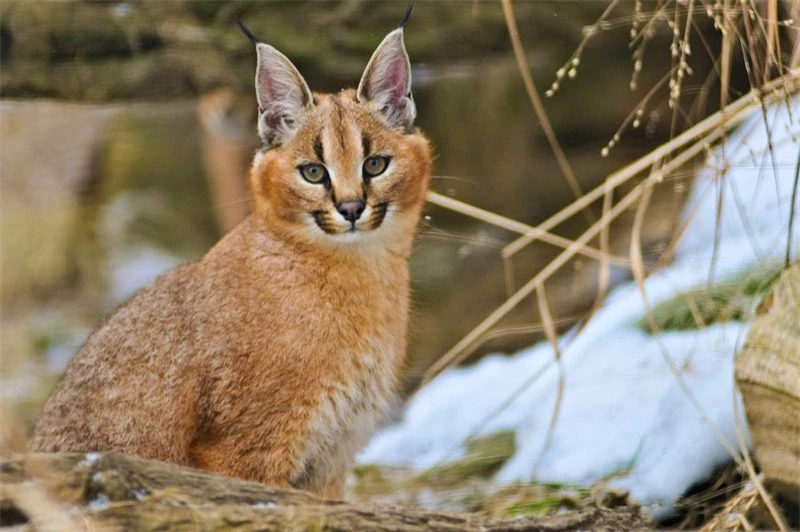The black-tailed lynx, commonly known as the caracal, boasts a captivating presence as a wild cat native to Africa and the Middle East. Remarkably, this species has gained popularity among animal enthusiasts as a domesticated pet.
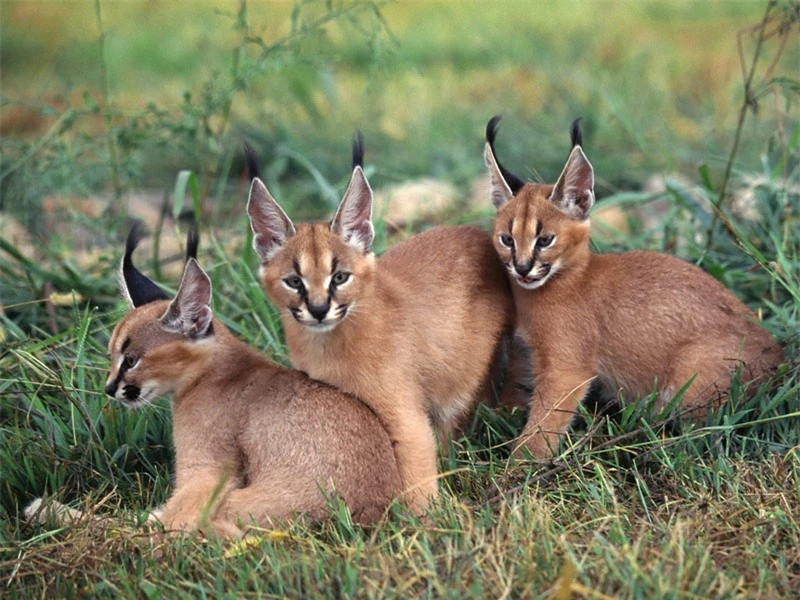
Distinguished by a fur coat ranging from brownish-orange to brick red, the black-tailed lynx exhibits distinctive features such as a white underbelly, chin, and throat, complemented by a striking black stripe extending from its eyes to the nose. With a length spanning between 40 to 50 cm and a weight range of 8 to 18 kg, this feline species embodies both grace and strength.
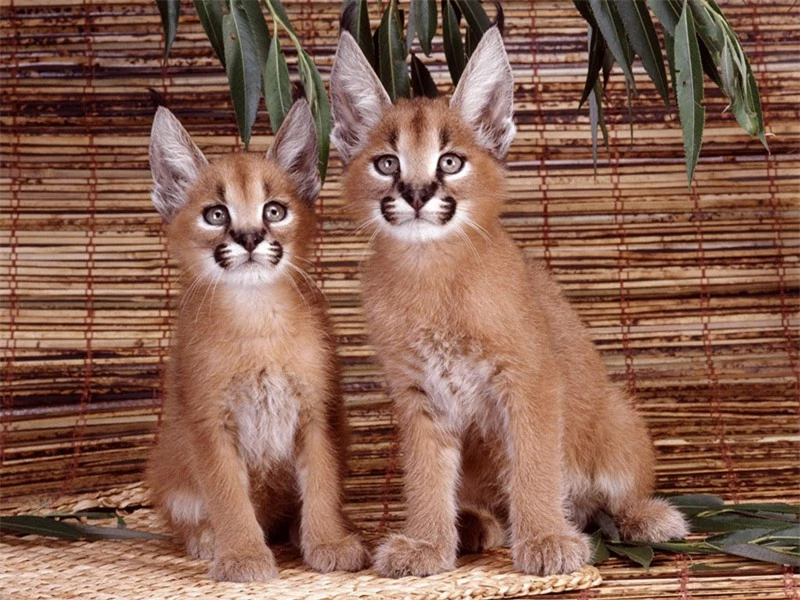
One distinctive trait of the black-tailed lynx is the cluster of long black fur situated behind its ears, measuring approximately 4.4 cm in length. This feature adds to the allure of this already fascinating creature.
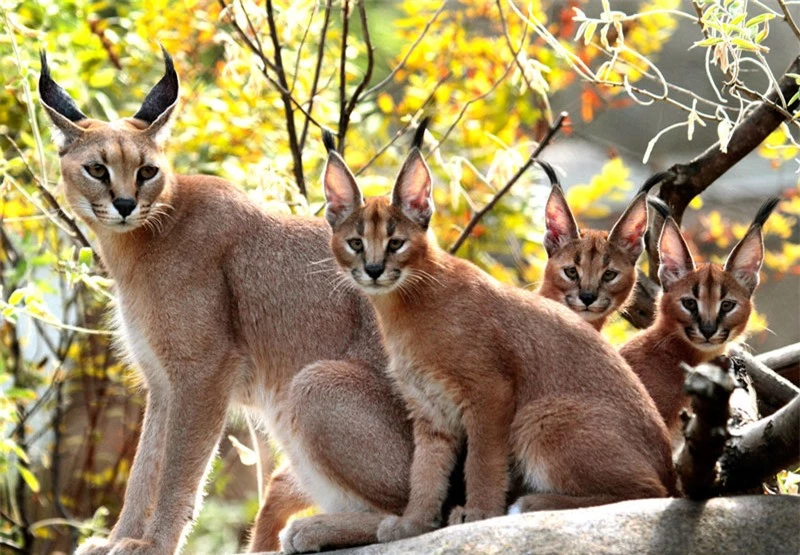
As a primarily nocturnal creature, the black-tailed lynx, also known as the black-handed civet, exhibits heightened activity during the night. Its diet typically consists of small mammals, birds, and rodents, showcasing its predatory nature.
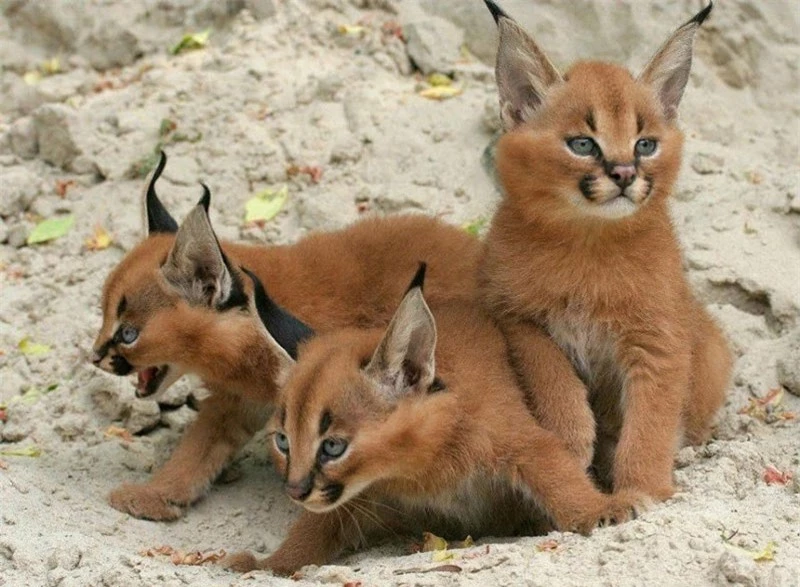
Notably agile, the black-tailed lynx has the ability to leap up to 3 meters in height, enabling it to catch birds mid-air—an impressive display of its hunting prowess.
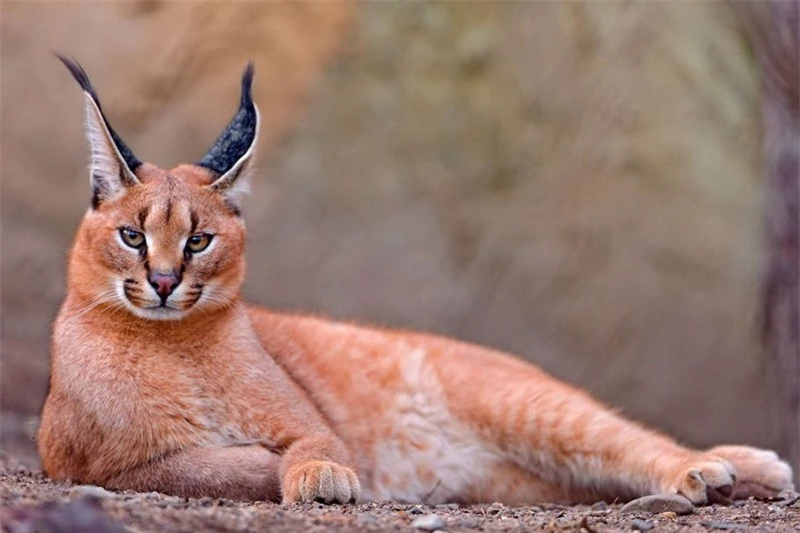
The appeal of the black-tailed lynx has extended beyond the wild, with an increasing number of individuals choosing these captivating felines as their preferred house pets. As they mature, typically reaching reproductive maturity at one year old, black-tailed lynxes have a gestation period of 2-3 months, giving birth to litters of 1-6 offspring.
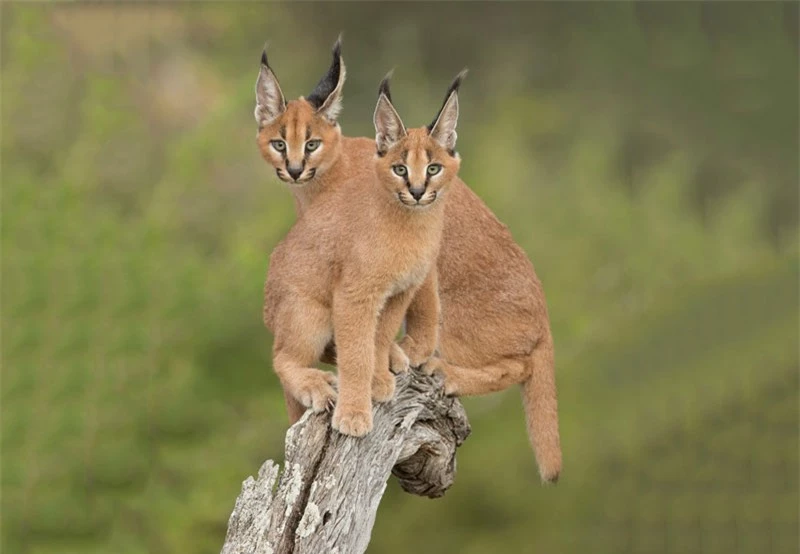
After approximately 9-10 months, the young lynxes embark on a journey of independence, leaving their mothers to establish their own territories. However, in some cases, the offspring may choose to stay close to their mothers.
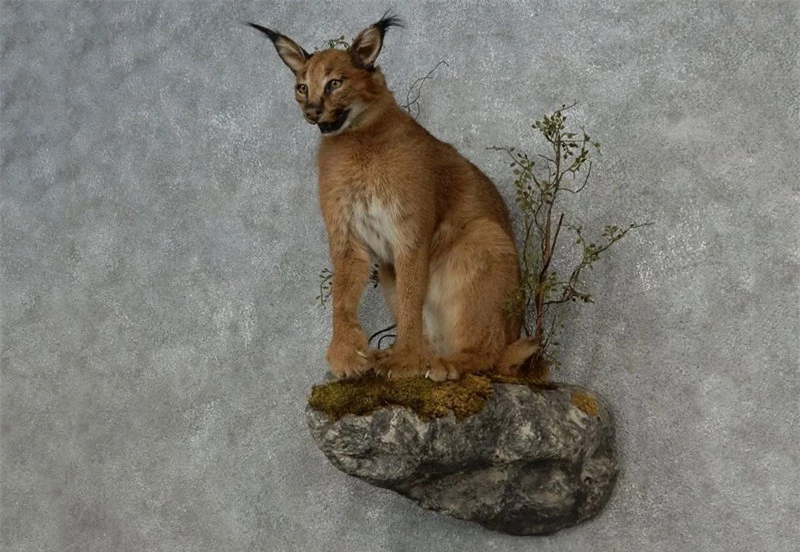
The habitat preference of the black-tailed lynx includes forests, deserts, and areas abundant with shrubs and bushes. While thriving in captivity, these felines have an average lifespan of up to 16 years.
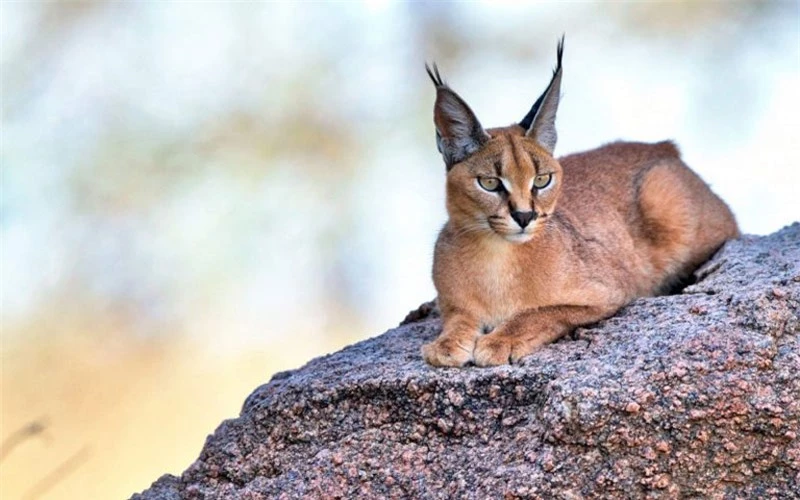
In essence, the black-tailed lynx, with its distinctive features and captivating behaviors, continues to enchant both wildlife enthusiasts and those seeking unique companionship in the form of a domestic pet.
